9 min read
How to Get Property Management Clients (Lead Gen Methods)
With such a competitive and fast-paced real estate market, especially rental markets, knowing how to get property management clients is crucial for starting and...
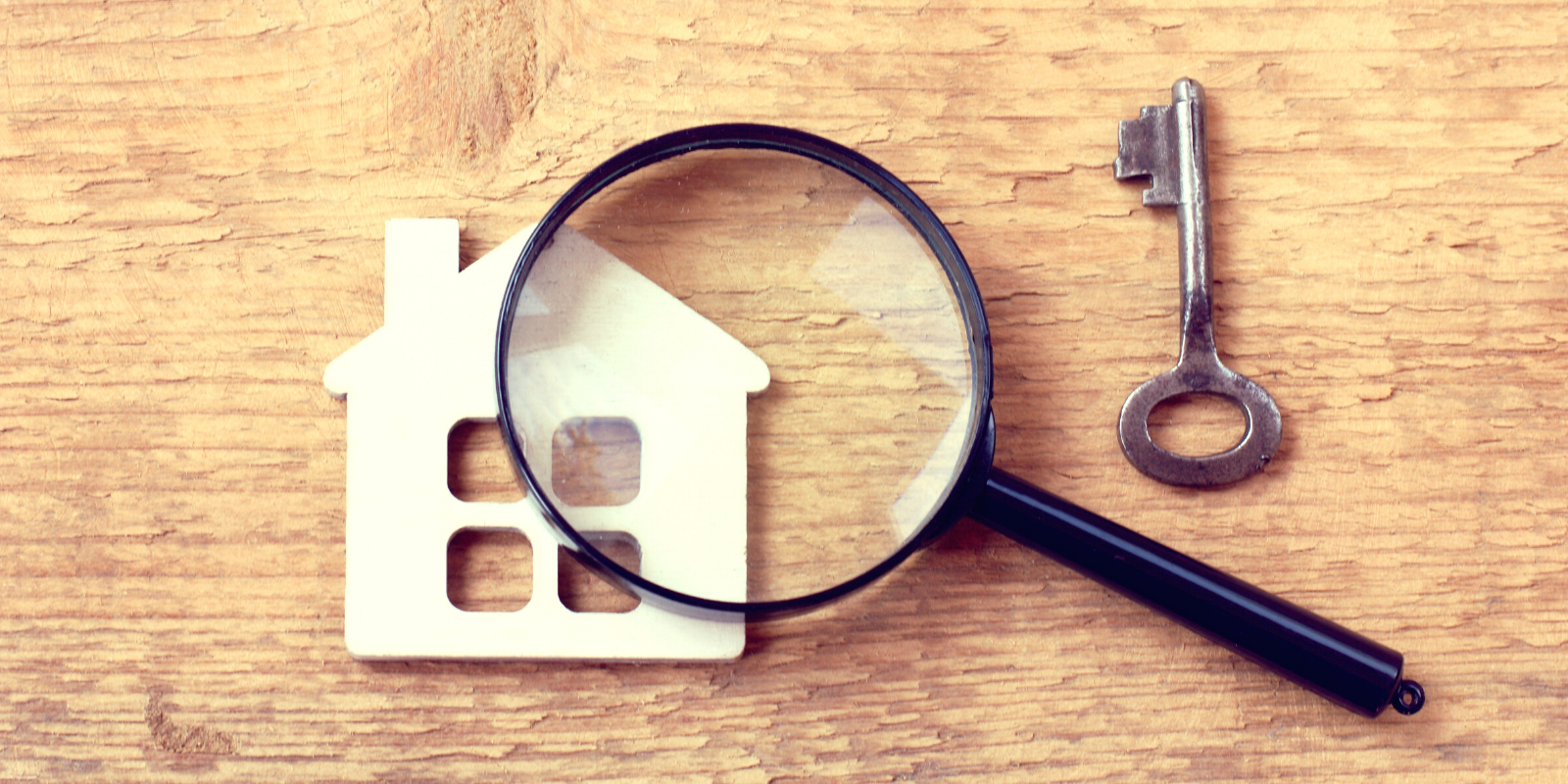
How exciting! You successfully marketed your rental, screened a tenant, and signed your first lease agreement. While this portion of the rental process is an accomplishment in itself, managing a rental property is not a ‘set it and forget it’ type of business, and may not be as much of a “passive income” investment as you might have originally believed. Arguably, the most difficult aspects of managing a rental come after you have screened and secured a tenant.
Once a lease begins, most landlords know they will be required to communicate with tenants, collect rent and maintain the property, but these duties only skim the surface of a property manager’s responsibilities. Thankfully, rental property management does not require you to be a professional; however, it does require time, commitment and a small amount of skill. In this article, discover the top rental property management responsibilities and how to address them after the lease agreement is signed.
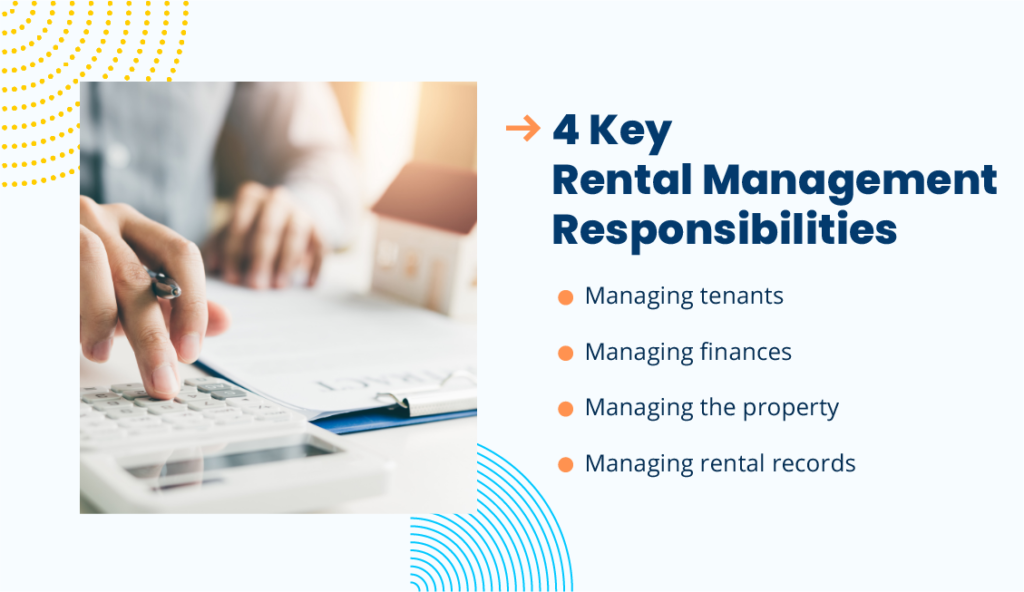
Rental management is the oversight of real estate properties either by a landlord or property management company and encompasses an array of day-to-day operations. Let’s take a high-level look at the operations required of landlords and property investors that occur after securing a tenant. There are four main areas of rental property management every landlord should be aware of:
Landlords that master these four categories of management can expect success with their investment.
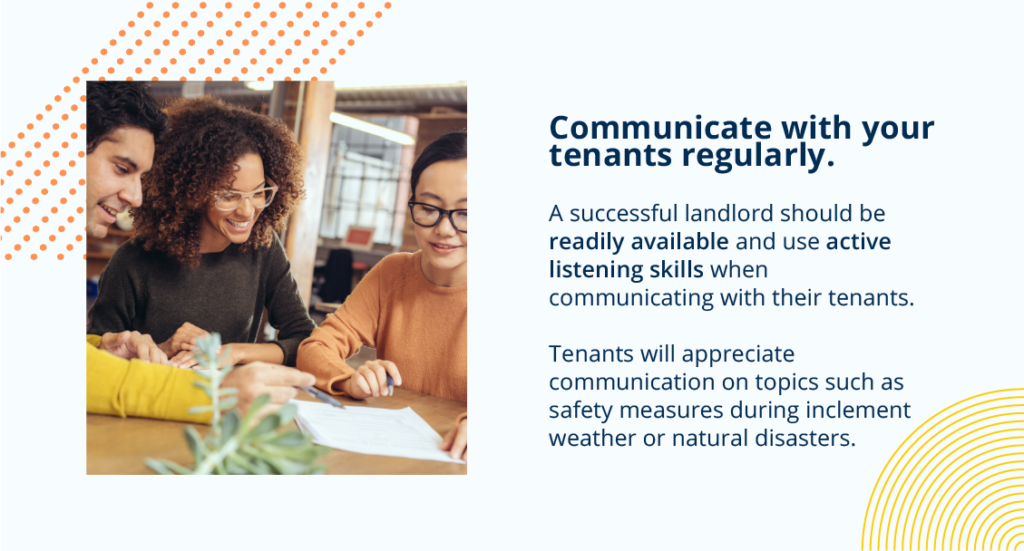
Considering renters play a crucial role in your rental’s return on investment, managing your tenants may be the most important responsibility you will face as a landlord. Utilizing interpersonal skills is a guaranteed way to build and maintain great relationships with your tenants, but how does a landlord incorporate these skills into their landlording? Here are several recommendations:
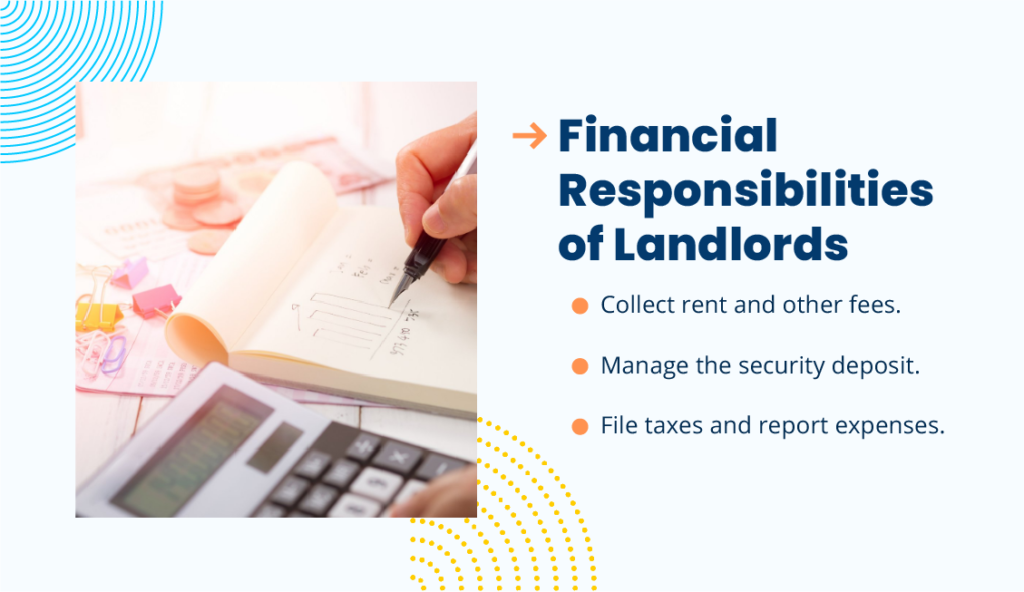
Don’t be fooled – managing rental finances is not just collecting rent and paying your mortgage. There’s much more that goes into managing the financial side of your rental, so much so that do-it-yourself landlords essentially take on the role of an accountant. As intimidating as that may sound, it should not keep you from pursuing your property investment goals. To make managing money more digestible, here is an easy-to-follow breakdown of a landlord’s top three financial duties:
Additionally, landlords should always be prepared for expenses associated with running a rental. Such expenses could include utilities (if the tenant isn’t responsible for paying), home insurance, potential court fees, and of course, surprise maintenance issues. The more you account for, the more you’ll be ready to handle unexpected costs!
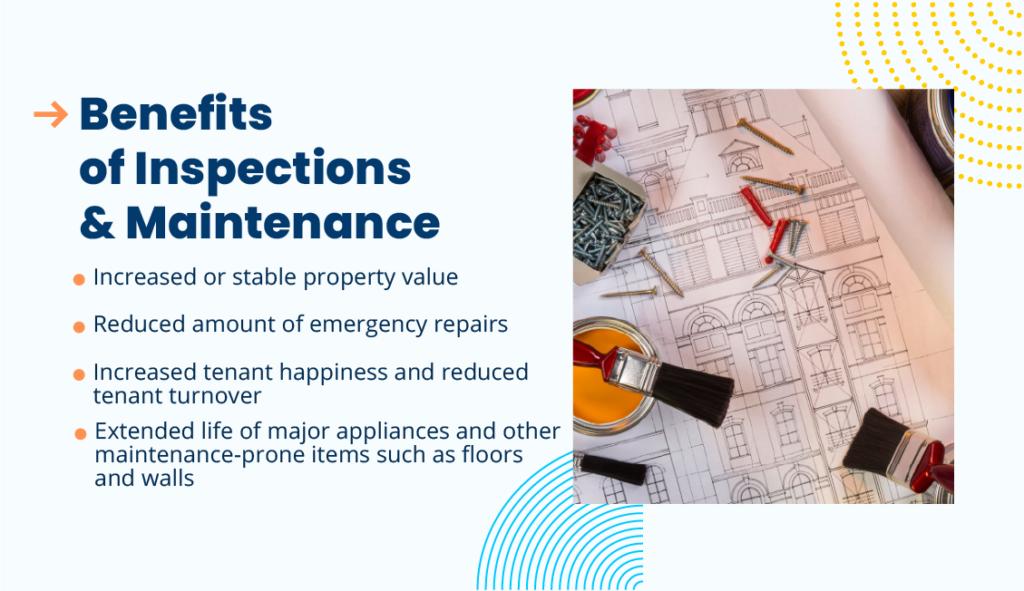
Besides the fact that landlords are legally required to take care of repairs that make their rental uninhabitable, maintaining your property not only helps your tenant live a comfortable life, it also safeguards your investment. Performing routine inspections and taking care of subsequent maintenance are the two main duties of managing the property itself. Benefits of both include:
Routine inspections, performed when a tenant moves in or out and during their lease, help you identify if any big-ticket items have issues that tenants may not identify on their own. To make certain you know what to look for at each stage of the rental process, utilize these free rental inspection checklists. If you identify any maintenance issues, remember – don’t delay. Delaying maintenance can jeopardize both your landlord-tenant relationship and property value.
Renovations are not necessarily required for managing your property, but should always be a consideration especially if you’ve just purchased an older property, or intend to charge more for rent. Renovations will attract more renters, ensure your property stays competitive and increase your property’s value. They do not have to be time-consuming or expensive but can be as simple as adding a fresh coat of paint. For renovation inspiration, check out these 16 upgrades that won’t break the bank.
Last but not least on the rental management journey is managing rental documents. Managing these documents will help you avoid potential liabilities and ensure you’re organized during the dreaded tax season. Take a look at what documents you should be concerned with and how to manage them appropriately:
As you can see, a great deal of effort goes into managing a rental property after a lease starts, but with proper education and organization, landlords can successfully run a rental business from cycle after cycle. To make things easier on your landlord journey, utilize online property management tools like TurboTenant – an all-in-one solution that manages everything from marketing your rental and screening potential tenants to collecting rent and handling maintenance requests.
9 min read
With such a competitive and fast-paced real estate market, especially rental markets, knowing how to get property management clients is crucial for starting and...
8 min read
Condo property management, on its face, is exactly what it sounds like — overseeing one or many units in a condominium building...
7 min read
Finding the ideal commercial or residential rental property can be challenging for renters, as it may only meet some of their specific...